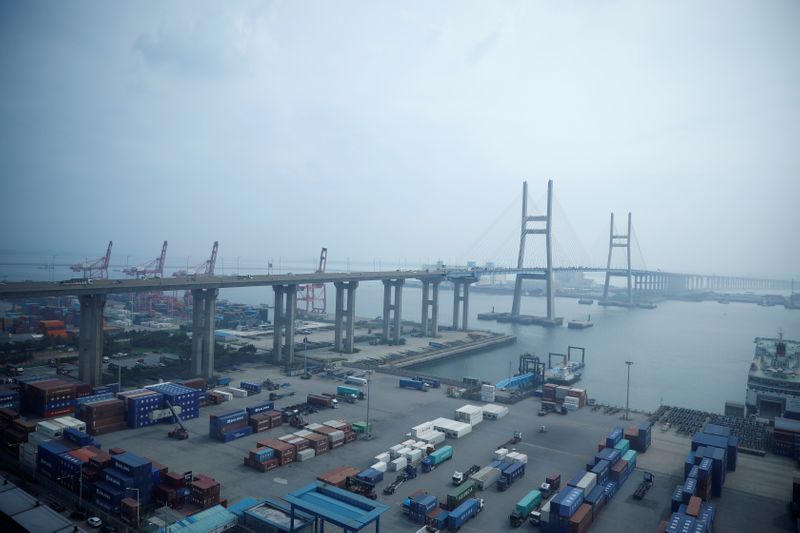By Joori Roh
SEOUL (Reuters) - South Korea's exports likely contracted for a fifth straight month in July as global demand remained weak despite the easing of coronavirus-related lockdowns, a Reuters poll showed on Wednesday.
While the worst may be over now that more economies are re-opening, surging infections in the United States and other countries are likely to slow their recoveries and weigh on demand for months to come.
July exports were expected to contract 9.7% from a year earlier, according to the median forecast of 12 economists polled by Reuters. That was slightly milder than a 12.8% plunge in preliminary data for the first 20 days of the month and a 10.9% decline in June.
South Korea's monthly trade data, the first to be released among major exporting economies, is considered a bellwether for global trade.
"Exports to China were seen declining again after a brief recovery in June, limiting the extent of overall recovery in exports," said Chun Kyu-yeon, economist at Hana Financial Investment.
"The pace of recovery will likely remain subdued, given crippling demand due to a sharp economic downturn in advanced economies and a possibility of a renewed U.S.-China trade dispute," she added.
South Korea's export-reliant economy, Asia's fourth-largest, plunged into recession in the second quarter after its sharpest contraction in more than two decades.
Hyundai, which together with sister company Kia Motors is the world's fifth-largest automaker, said last week that weakness in both mature and developing economies means auto sales may only recover to 2019 levels around 2023.
Demand for semiconductors, the country's top export, are also a concern as the world's No. 2 memory chip maker SK Hynix (KS:000660) warned that chip prices would correct in the second half as strong pent-up demand from global lockdowns begins to wane.
July imports were expected to tumble 11.5% year-on-year, compared with a 11.2% plunge in June.
Meanwhile, eleven economists polled by Reuters predicted industrial output in June would rise by a seasonally adjusted 2.1% month-on-month, sharply reversing a 6.7% decline in May. Industrial output data trail trade and some other data by a month.

Ten economists also estimated consumer prices would rise a median 0.4% in July from a year earlier, compared with no change in the previous month.